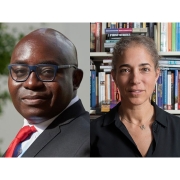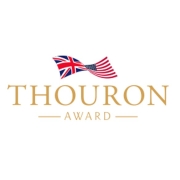Researchers Control the Size of 2-D Nanopores With Light
Researchers are investigating a new technology that, if proven, could lead to small, chip-size sensors capable of sensing molecules and detecting illnesses or even possibly the presence of viruses. The technology is focused on nanopores, tiny holes typically just a few nanometers across, 100,000 times smaller than the width of a single strand of human hair. Threading a strand of DNA, which in its single-strand form has a diameter of 1.1 nanometers, through these nanopores allows scientists to sequence the bases of the DNA due to their different sizes.
As part of a joint grant from the National Science Foundation, a Penn-led team is testing nanopores in a novel 2-D material called tungsten disulphide, which may provide advantages over graphene, including exploiting the optical properties of this class of metal dichalcogenide materials. In addition to realizing nanopores in this material and proving that these nanopores work in salt solution, the researchers found a surprising twist, the nanopores responded to light, expanding when laser light was shined on them, with an expansion rate that increased as the laser power was increased.
“What I was expecting was that by shining light, we could affect some aspect of DNA motion through the pore,” says Marija Drndić, Fay R. and Eugene L. Langberg Professor of Physics. “But when we shined the light, we saw that the pores expanded.”
The research was led by Drndić and Penn graduate students Gopinath Danda and Paul Masih Das. A.T. Charlie Johnson, a professor of physics and director of the Nano/Bio Interface Center at Penn, and Mauricio Terrones, a professor of physics at Penn State, also contributed to the research.
Click here to read the full story.





